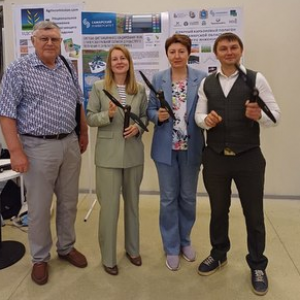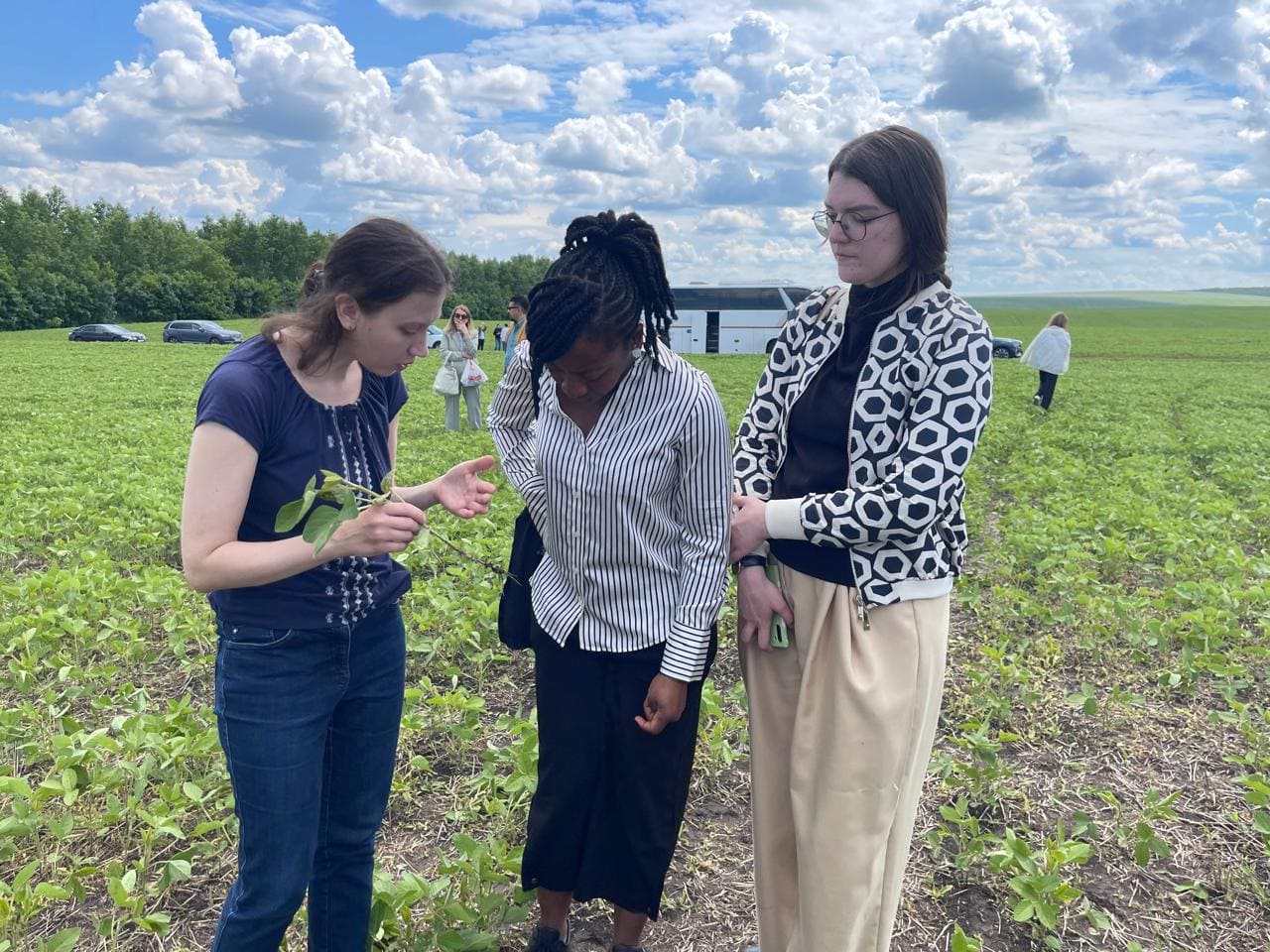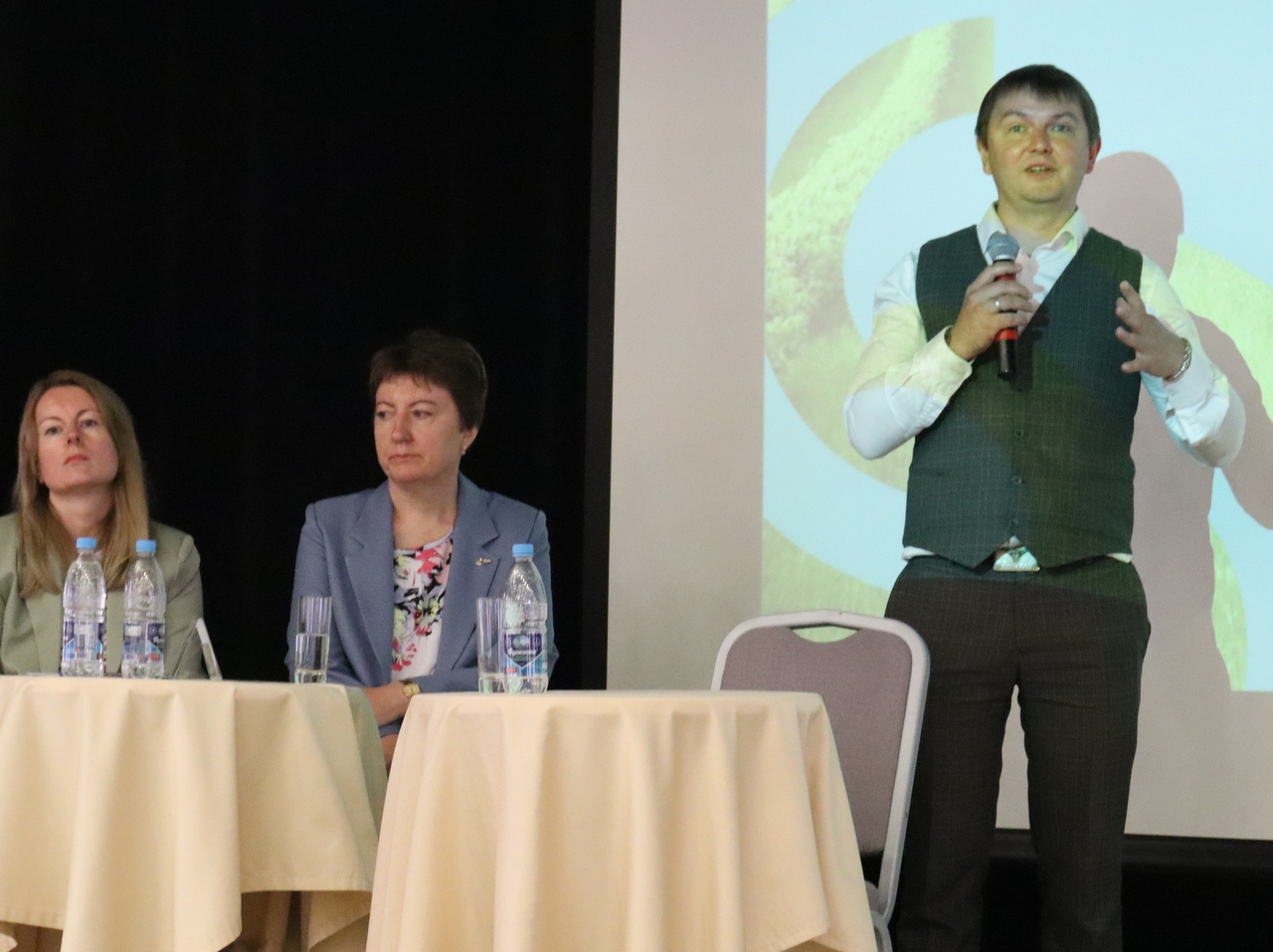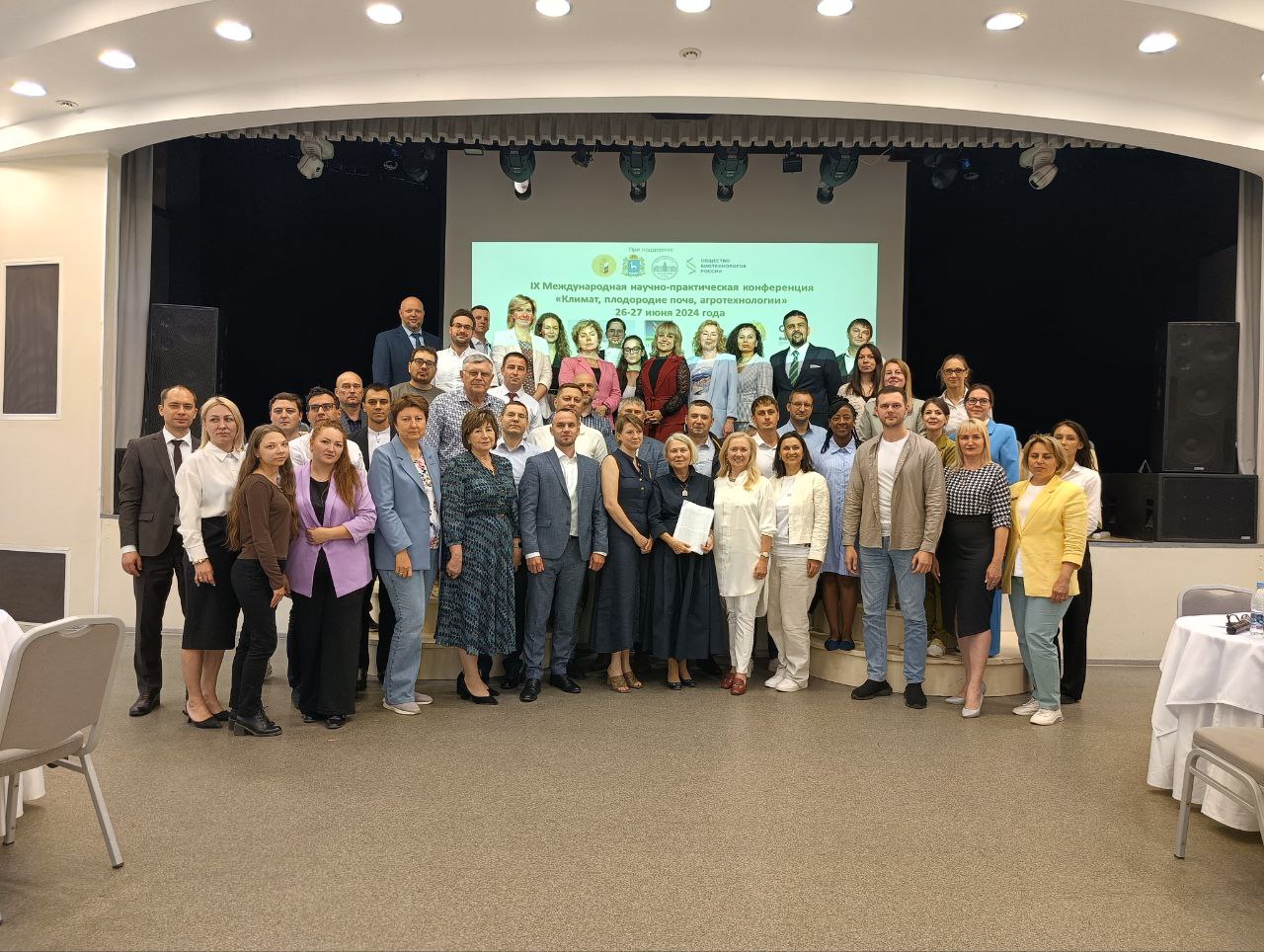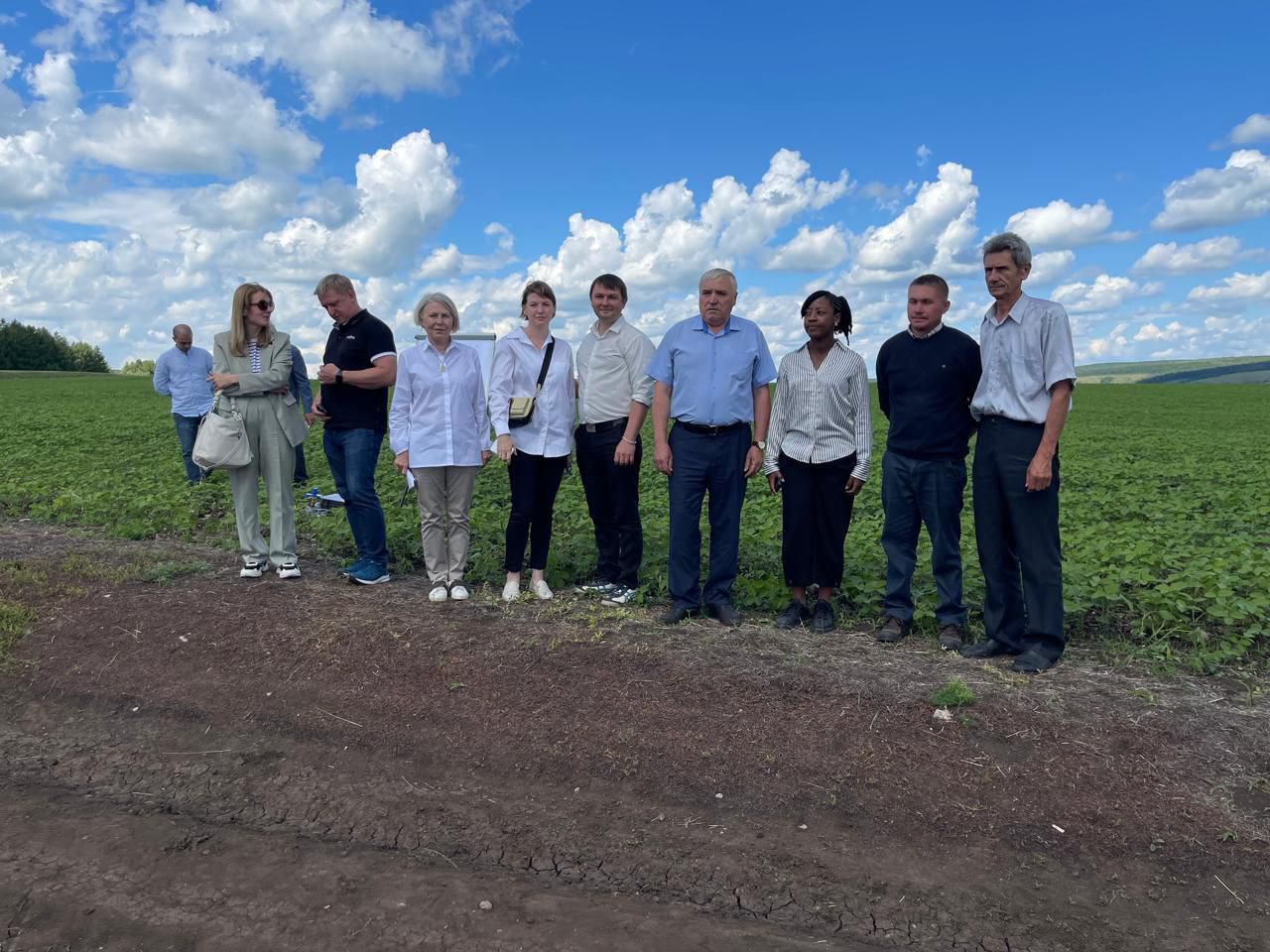On June 26-27, 2024, the 9th International Conference “Climate, Soil Fertility, Agrotechnologies – 2024” took place in Samara. The Conference brought together participants from many countries of the world, about 500 representatives of research teams, agricultural producers, government agencies, business, financial and public organizations and initiatives. The speakers were participants from 6 countries, representatives of leading Russian scientific and educational institutions of the near and far abroad, representatives of China, India, Serbia, Ghana, Kenya, the USA made presentations, agricultural producers shared their experience in implementing soil-protective resource-saving agriculture, which allows effectively depositing carbon and restoring soil biota, thereby preserving soil fertility.
The Conference was organized by NPP “NDSZ” (Non-Profit Partnership “National Movement of Saving Agriculture”), the St. Petersburg Dialogue Forum, the Russian Academy of Sciences, the Chamber of Commerce and Industry of the Russian Federation, RANEPA, FRC “V.V. Dokuchaev Soil Institute”, Samara University, Samara State Agrarian University, Samara State Medical University, with the support of the Ministry of Education and Science of the Russian Federation (within the FSSS-2024-0022 project) and the Ministry of Agriculture of the Russian Federation.
On the first day of the Conference, on June 26, the grand opening of the Conference and its Plenary Session took place. The conference was opened by the Deputy President of the Russian Academy of Sciences, Chairman of the Committee of the Chamber of Commerce and Industry of the Russian Federation for Development of the Agro-Industrial Complex, Academician of the Russian Academy of Sciences P.A. Chekmarev; Acting Chairman of the Government of the Samara Region I.A. Andreev; Deputy of the State Duma, Chairman of the Subcommittee on effective involvement in agricultural land turnover and development of the reclamation complex of the State Duma Committee on Agrarian Issues A.A. Anikeev; President of the National Movement of Saving Agriculture L.V. Orlova; Honored Banker of Russia, Academic Director and Producer of the program “ESG Transformations of Business”, President of the ESG Business Club G.Yu. Fomina. The speakers noted relevance of the Conference agenda, its great theoretical and practical significance for constructive dialogue and productive exchange of views.
The Conference objectives were discussing the current state of Russian soils and developing tools for implementing the Presidential Edicts on implementation of nature-like technologies, decarbonization and the functioning of the low-carbon development strategy of the Russian Federation, including creation of agricultural climate projects, the agricultural national carbon market, procedures for calculating and releasing carbon units, issues in the field of soil conservation, nature-like technologies, as well as development of used tools and measures for achieving the National Sustainable Development Goals (SDGs), creation of Russian validation mechanisms recognized by the BRICS countries. The participants discussed issues of sustainable development, relevant to society, in the field of soil fertility and agricultural technologies, and got acquainted with the experience of foreign colleagues.
For the first time, Russian agrarians implementing soil-saving farming practices, politicians, representatives of banks, verifiers, leading scientists and representatives of large and small businesses gathered on the same venue, who could jointly aspects of the effective application of nature-like technologies and saving-agriculture practices, development of climate projects, carbon footprint assessment and calculation of carbon units, “green” investments, effective ways of “greening” agricultural production and other innovative mechanisms for supporting introduction of climate-focused sustainable agricultural production. The report on the results of the work within the framework of the “AgroEngineering” Agricultural Carbon Landfill Project was presented by the scientific team of the consortium of universities and industrial partners: V.I. Platonov (Samara University), N.M. Trots (Samara State Agrarian University), L.V. Orlova (NPP “NDSZ”), G.V. Knurova and E.A. Zakharova (“AIC Orlovka”).
On the second day of the Conference, the Field Day was held in the territory of the “AIC Orlovka” farm, which is the site of the first agricultural carbon landfill in Russia “AgroEngineering”. Crops of winter and spring durum wheat, soybeans, flax and peas grown with using saving agriculture, biological methods of plant protection and preservation of the soil microbiome, the technique and unique research equipment for remote monitoring of greenhouse gases developed by scientists of Samara University (portable chromatograph, hyperspectral camera, UAV) used for research that conducted by members of the scientific team within the framework of the “AgroEngineering” Agricultural Carbon Landfill Project, were presented.
As part of the work, the climate project is being implemented, carbon units are being recorded, the carbon footprint of agricultural products has been assessed over 5 years, effectiveness of the return of macro- and microelements to the soil with plant residues has been assessed, and unique research is being conducted for the purpose of studying the soil microbiome by using the culture method.
The climate project was prepared in compliance with the methodology of the Israel Institute, according to which it is estimated that the climatic effect when using the saving agriculture technology is about 1.5 tons of CO2-eq/ha per year. Assessment of the carbon footprint of the products of the agricultural carbon landfill revealed high responsiveness of low-carbon production to competently applied technologies of conservation agriculture – with steady reduction in greenhouse gas emissions from 2 to 4 times, compared with the conventional technology. Calculations of efficiency of the return of crop residues and carbon have shown that the practice of saving agriculture allows significantly meeting the demand of crops for trace elements.
As the result of the Conference, the resolution on the necessary system of measures for modernizing the agroindustrial complex and forming a new development paradigm, implying the use of nature-like soil-saving technologies, extensive biologization of agriculture, the study of the microbiome of soil, plants, the possibility of managing it, as well as the study of soil organic carbon, carbon units, carbon footprint, has been adopted.
